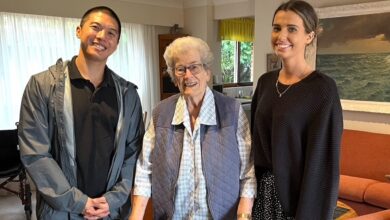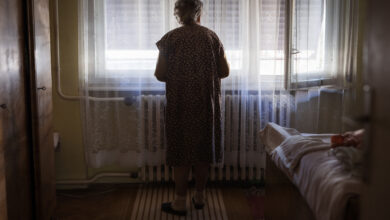Without funding for critical physiotherapy services, older people are in danger of receiving the cheapest, not the best, care

Harrowing stories of neglect and abuse shone a much-needed spotlight on the aged care sector and led to the landmark Royal Commission into Aged Care Quality and Safety. These stories were powerful and easily understood.
Less easy to understand are two words that the Royal Commission identified as critical to improving the quality of life of older Australians – restorative and reablement. Yet these two words mean the difference between someone living and dying, being bedbound or walking.
Restorative care refers to the type of care delivered to address a sudden decline in health or an injury. An example of this type of care is post-operative rehabilitation, without which older people are too often left with avoidable disabilities and pain.
Reablement, as defined by the Australian Association of Gerontology, challenges the belief that physical and mental declines are irreversible and unavoidable as we age.
In fact, certain exercises and activities can help older people to maintain – and in some cases even regain – their coordination, strength, cognition and balance. Without this type of care, older people are more like to fall, which is the leading cause of preventable death among their cohort.
The Royal Commission stated: “The aged care system should help people to maintain independence, and the funding arrangements for residential aged care should be aligned with this goal. We recommend funding incentives for providers to invest in restorative care and reablement.”
Promoting and maintaining mobility and reducing the risk of life-threatening falls in older people was noted as critical in the final report, which found that access to physiotherapists, who are highly trained and skilled in strength, balance and mobility training, was often lacking in aged care.
Research has shown that physiotherapy can reduce falls by 55 per cent, the number one cause of preventable death in older people, and save the taxpayer money by avoiding costly surgeries and hospitalisations. It also spares older people the debilitating and excruciating injuries and recovery periods of preventable falls that are caused by lack of balance, coordination and strength.
Despite its headline grabbing investment in aged care, the Australian Government has failed to address critical Royal Commission recommendations to ensure provision of allied health services, such as physiotherapy, that would help older people in residential aged care live more independently.
The government has adopted the new residential aged care funding model, the Australian National Aged Care Classification (AN-ACC) which, positively, does not incentivise illness as the current Aged Care Funding Instrument (ACFI) does.
However, the AN-ACC fails to include specific funding for allied health such as physiotherapy. Without specific funding for critical physiotherapy services, older people are in danger of receiving the cheapest, not the best, care.
The ACFI directly funds residential aged care facilities to contract physiotherapists to deliver pain management for up to 80 per cent of residents. The new funding tool will no longer provide payment for pain management and is expecting aged care providers to pay for physiotherapy out of their profits. Currently only 1 per cent of residents receive a reablement or restorative physiotherapy program.
There is a temporary program adopted by the Federal Government and currently being rolled out in a number of COVID-affected residential aged care facilitates across the country that has been based on the work of physiotherapist Dr Jennifer Hewitt.
Recognising the effectiveness of this type of program in residential aged care is an important first step, but this program is only temporary. Permanent programs need to be rolled-out in response to the Royal Commission’s final report.
All older people should receive restorative and reablement care whether at home or in residential care to ensure they can live their best lives as long as possible. We are calling on the government to introduce an additional layer of funding to enable this, particularly in residential aged care where it is most needed.
Scott Willis is the Australian Physiotherapy Association national president
Email: [email protected]





